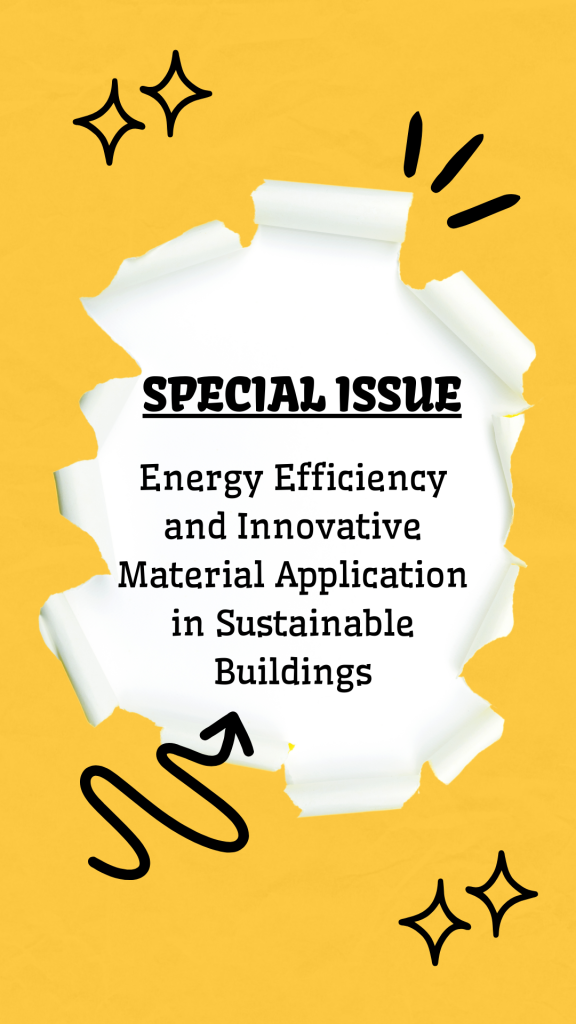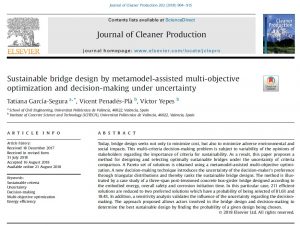 Sustainability (ISSN: 2071-1050) is an international, peer-reviewed, open-access journal on environmental, cultural, economic, and social sustainability of human beings, published semimonthly online by MDPI.
Sustainability (ISSN: 2071-1050) is an international, peer-reviewed, open-access journal on environmental, cultural, economic, and social sustainability of human beings, published semimonthly online by MDPI.
- Open Access— free for readers, with article processing charges (APC) paid by authors or their institutions.
- High Visibility: indexed within Scopus, SCIE and SSCI (Web of Science), GEOBASE, GeoRef, Inspec, AGRIS, RePEc, CAPlus / SciFinder, and other databases.
- Journal Rank: JCR — Q2 (Environmental Studies) / CiteScore — Q1 (Geography, Planning and Development)
- Rapid Publication: manuscripts are peer-reviewed, and a first decision is provided to authors approximately 18.8 days after submission; acceptance to publication is undertaken in 3.6 days (median values for papers published in this journal in the second half of 2023).
- Recognition of Reviewers: reviewers who provide timely, thorough peer-review reports receive vouchers entitling them to a discount on the APC of their next publication in any MDPI journal in appreciation of the work done.
- Testimonials: See what our editors and authors say about Sustainability.
- Companion journals for Sustainability include World, Sustainable Chemistry, Conservation, Future Transportation, Architecture, Standards, Merits and Wind.
Special Issue Editors
Interests: multi-objective optimization; structure optimization; lifecycle assessment; social sustainability of infrastructures; reliability-based maintenance optimization; optimization and decision-making under uncertainty
Special Issues, Collections and Topics in MDPI journals
Interests: multi-objective optimization; structure optimization; lifecycle assessment; social sustainability of infrastructures; metamodels
Special Issue Information
Dear Colleagues:
The Special Issue “Energy Efficiency and Innovative Material Application in Sustainable Buildings” focuses on advancing energy-efficient practices and novel materials in construction, crucial for global sustainability. Buildings account for significant energy use and carbon emissions, necessitating innovations to enhance efficiency and reduce environmental impact. This Special Issue aims to facilitate interdisciplinary dialogue and to highlight cutting-edge research in sustainable architecture and engineering. Aligned with the journal’s scope, it seeks to inspire professionals while promoting sustainable design and construction excellence. Key themes include energy-efficient design, innovative materials, intelligent building technologies, lifecycle assessment, and case studies illustrating best practices. Through these avenues, this Special Issue aims to contribute to a more sustainable and resilient built environment, addressing critical challenges and fostering progress towards a greener future.
In this Special Issue, original research articles and reviews are welcome. Research areas may include (but are not limited to) the following:
- Energy-Efficient Building Design and Retrofitting;
- Nanotechnology Applications for Energy-Efficient Building Materials;
- Integration of Renewable Energy Systems in Urban Buildings;
- Sustainable Concrete Solutions for Green Construction;
- Emerging Trends in Energy-Efficient HVAC Systems;
- Smart Building Systems and Technologies ;
- Circular Economy Approaches in Building Material Management;
- The Role of Artificial Intelligence in Optimizing Building Energy Performance;
- Innovations in Daylighting and Natural Ventilation Strategies;
- Net-Zero Energy Building Case Studies: Lessons Learned and Future Directions;
- Case Studies and Best Practices;
- Regenerative Design in Architecture and Construction.
We look forward to receiving your contributions.
Prof. Dr. Víctor Yepes
Prof. Lorena Yepes-Bellver
Guest Editors
Manuscript Submission Information
Manuscripts should be submitted online at www.mdpi.com by registering and logging in to this website. Once you are registered, click here to go to the submission form. Manuscripts can be submitted until the deadline. All submissions that pass pre-check are peer-reviewed. Accepted papers will be published continuously in the journal (as soon as accepted) and will be listed together on the special issue website. Research articles, review articles as well as short communications are invited. For planned papers, a title and short abstract (about 100 words) can be sent to the Editorial Office for announcement on this website.
Submitted manuscripts should not have been published previously nor be under consideration for publication elsewhere (except conference proceedings papers). All manuscripts are thoroughly refereed through a single-blind peer-review process. A guide for authors and other relevant information for submission of manuscripts is available on the Instructions for Authors page. Sustainability is an international peer-reviewed open-access semimonthly journal published by MDPI.
Please visit the Instructions for Authors page before submitting a manuscript. The Article Processing Charge (APC) for publication in this open-access journal is 2400 CHF (Swiss Francs). Submitted papers should be well formatted and use good English. Authors may use MDPI’s English editing service prior to publication or during author revisions.
Keywords
- energy efficiency
- innovative materials
- sustainable buildings
- smart buildings
- green construction
- circular economy



